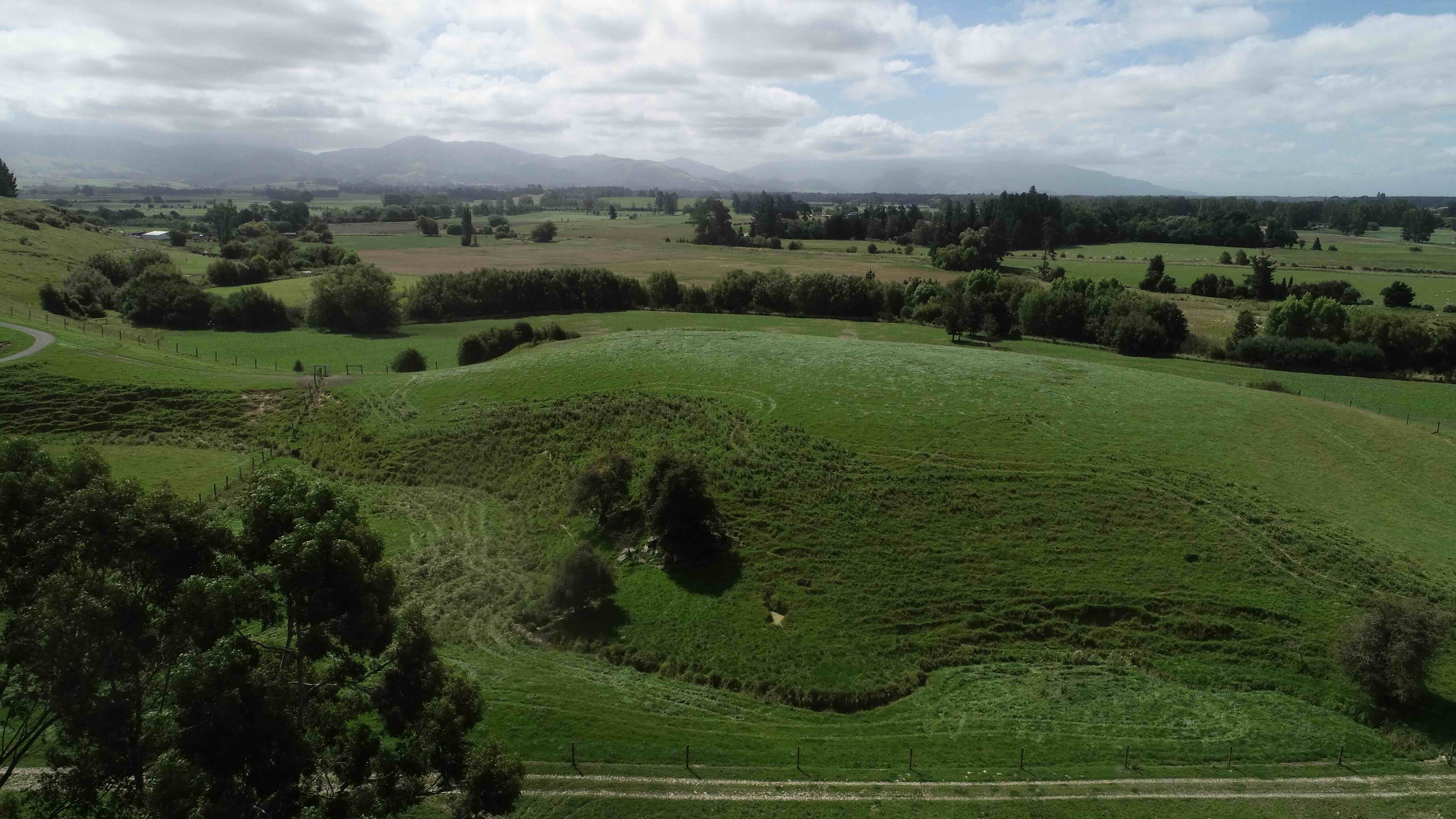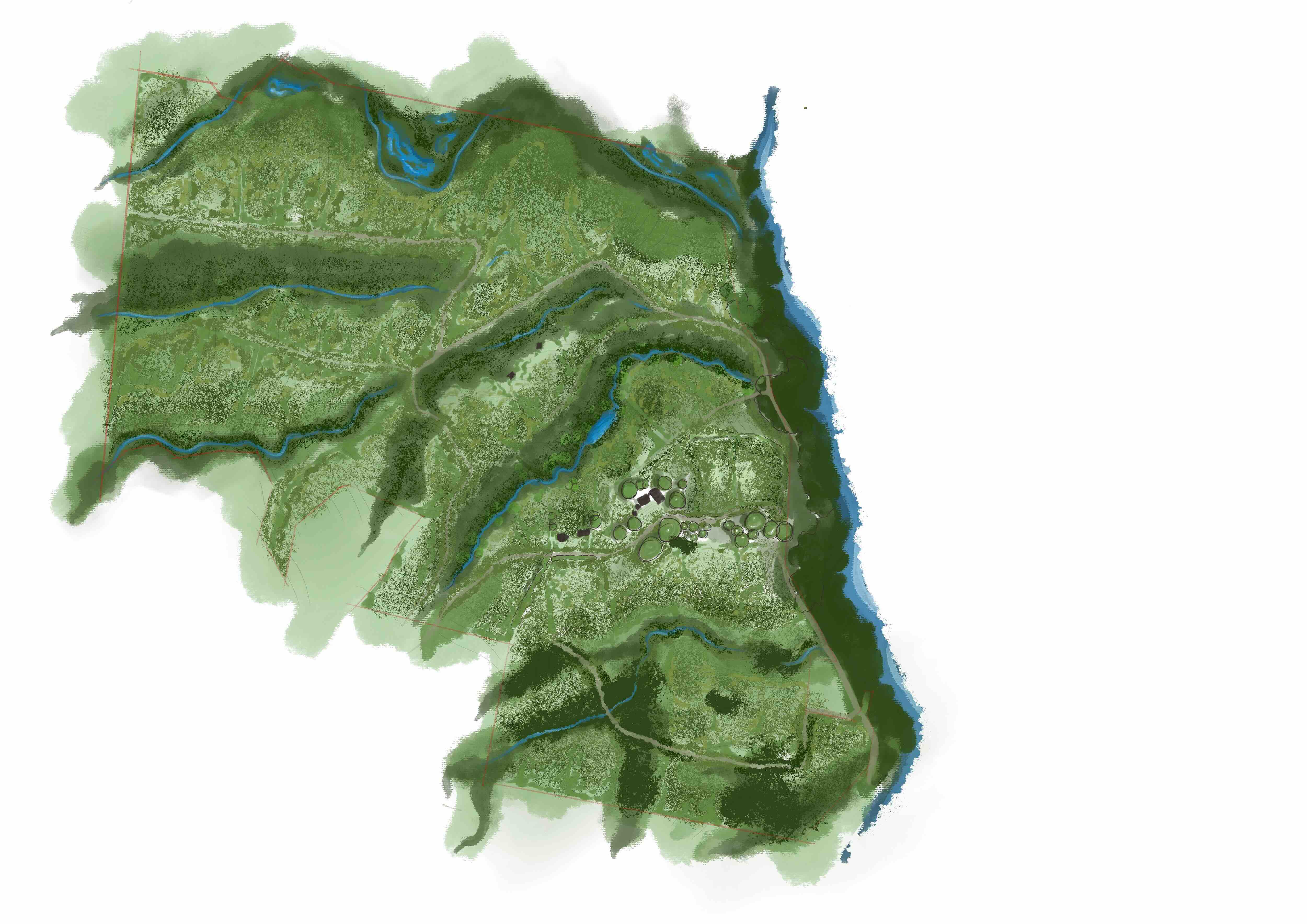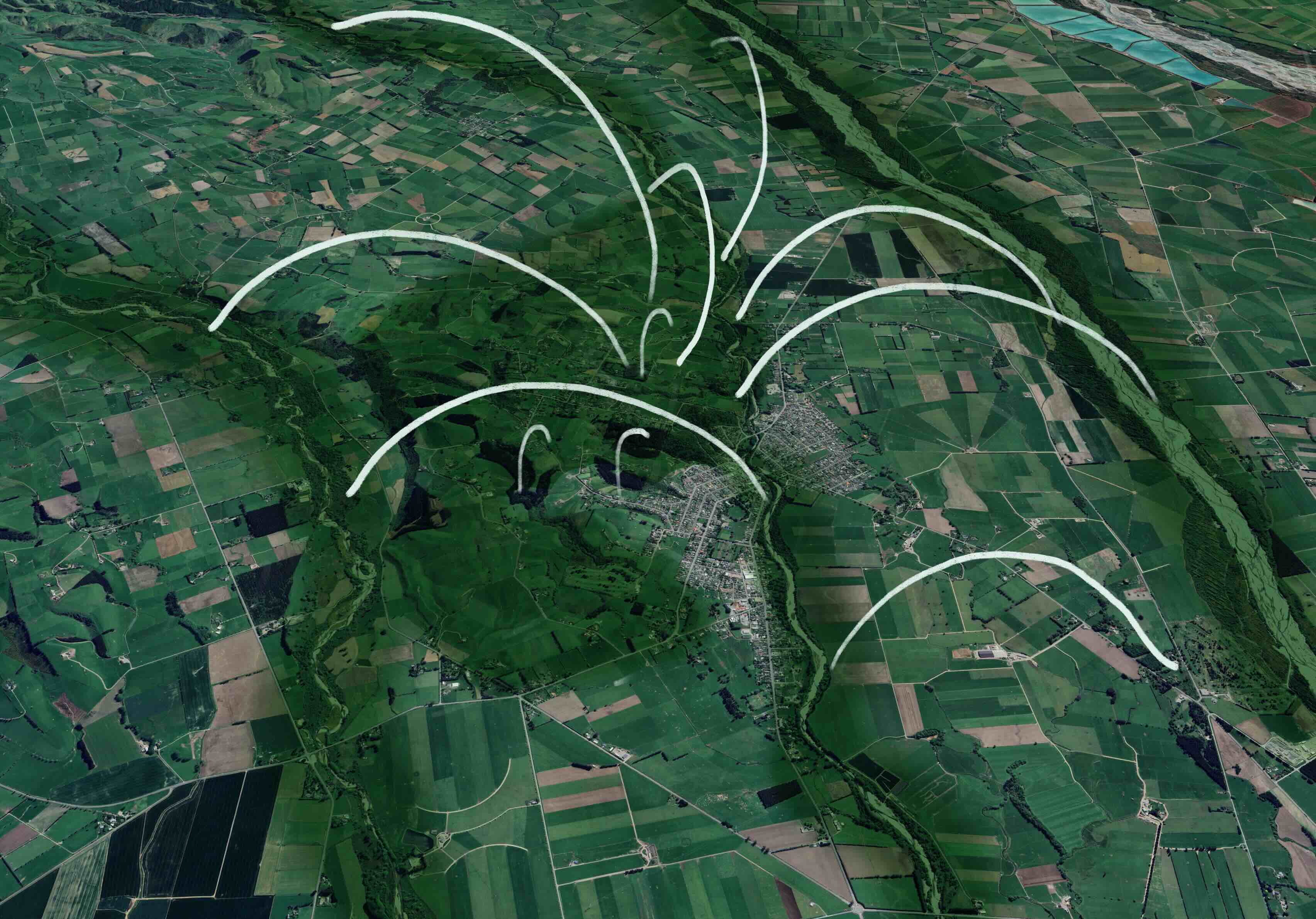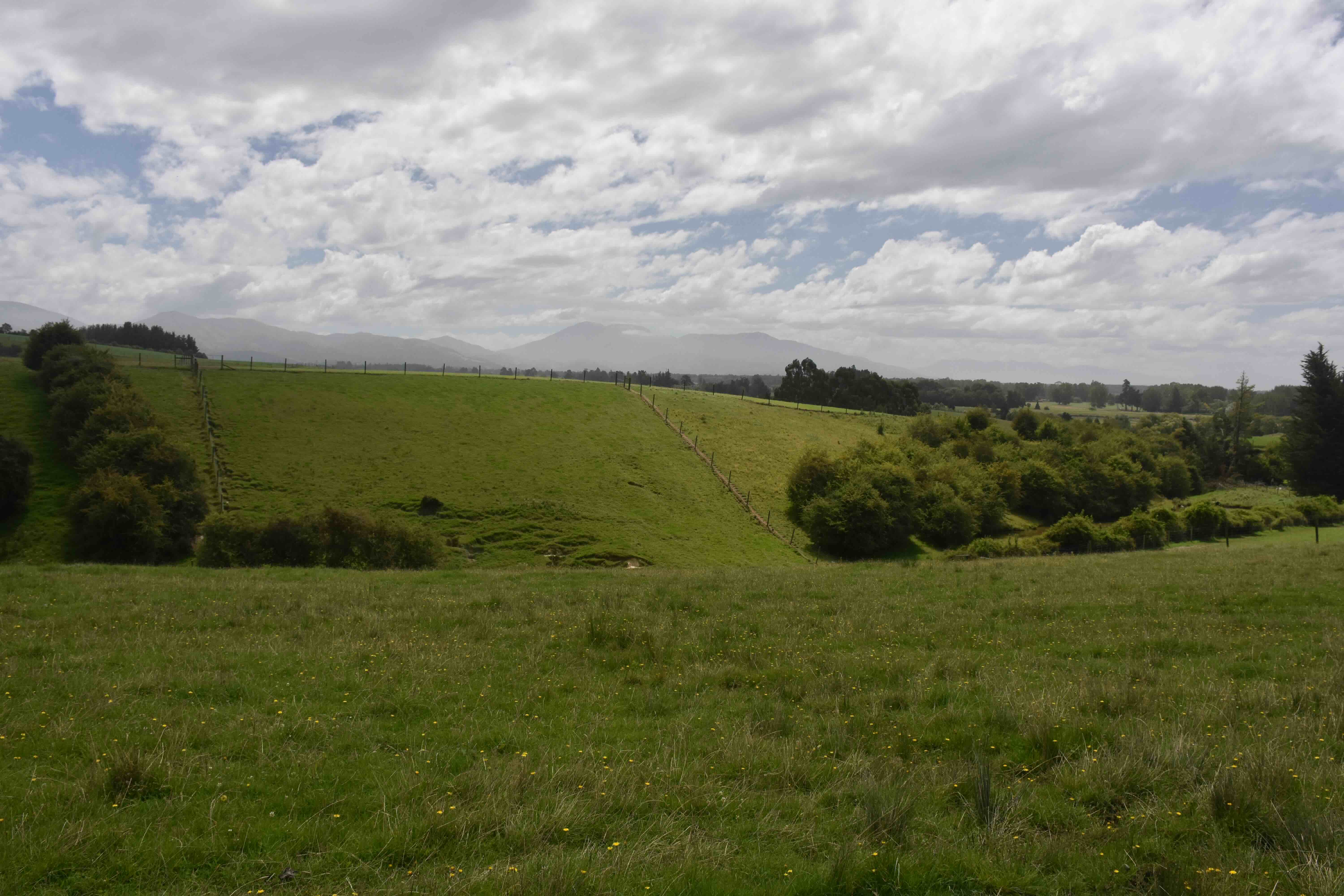



Reconnecting the fractured ecological landscape around Geraldine
Waitui Farm sits just south of Geraldine, where the Waihī River meanders through a landscape now dominated by irrigated dairy and crop farms. Yet just to the north lies Talbot Forest—one of the last remnants of lowland podocarp forest in the region. Between the two, a gap. An ecological disconnect.
This project began with a simple but bold question: What if Waitui Farm could become the bridge?
Working with the landowners and local restoration partners, our design approach explored how residential development could actively contribute to landscape-scale regeneration. Instead of fragmenting habitat further, we asked how a new kind of development might help stitch ecosystems back together—extending the influence of places like Talbot Forest Reserve and reintroducing podocarp, rimu–mataī–broadleaf forest systems across the valley floor.
By positioning native planting at the heart of the site’s identity—and aligning it with Geraldine’s growing biodiversity movement—Waitui Farm became a testing ground for what regenerative land use could look like at the rural-urban edge.